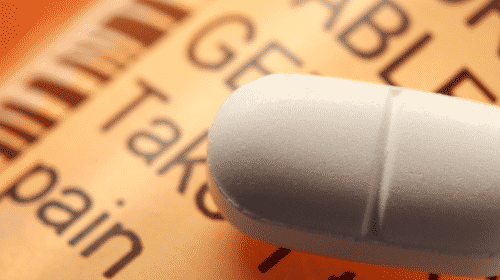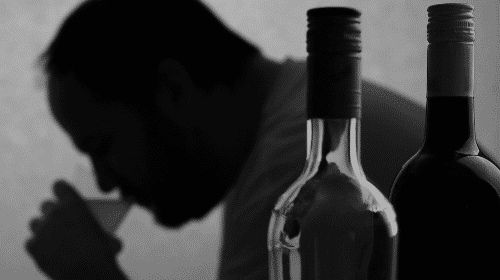Expert Insights
Mississippi is predominantly a rural state, with 79.3% of its counties considered to be rural areas. Rural areas face unique challenges when providing substance abuse treatment. Residents often have reduced access to hospitals, clinics, mental health facilities, and not-for-profit organizations that offer addiction treatment services.
One factor in the rural lifestyle, however, can be a mitigating factor and even an added benefit. In such smaller communities, churches, schools, and other community organizations tend to work more collaboratively together, and often become sites for community education and recovery treatment services. Clients may benefit from the support offered by familiar, friendly faces.
~ Rita Milios
How Much Does Drug Rehab Cost in Mississippi?
Mississippi is ranked 6th nationwide in terms of addiction treatment affordability, with an average cost of drug and alcohol rehab of $54,805 (without insurance).
- Medical detox is the most expensive, with an average cost of $135,114
- Inpatient drug rehab in Mississippi costs an average of $48,362
- Outpatient addiction treatment in Mississippi costs an average of $8,036
- Outpatient methadone treatment is the most affordable, with an average cost of $7,140
The costs of addiction treatment centers in Mississippi depend on the type you attend (such as inpatient vs. outpatient), the duration of your stay during care, and the services you receive.
For example, an inpatient stay after a medical detox for 60 days would be more expensive than receiving weekly outpatient therapy sessions for 30 days. Ultimately, you can expect to pay between $0 (if you have insurance or attend a free facility) and tens of thousands of dollars (if you choose a luxury treatment center or attend long-term inpatient).
How to Pay for Drug Rehab in Mississippi
As of 2024, there were over 110 drug rehab facilities across the state of Mississippi. These facilities accept several payment methods. Of those treatment facilities, the following numbers reflect how many accept their respective payment methods:
Private Insurance Carriers
- Aetna
- Ambetter Health
- Blue Cross /Blue Shield
- Cigna
- Farmers Insurance
- Humana
- Magnolia Health
- Molina Healthcare
- UnitedHealthcare
- Vantage Plan of Mississippi
Medicaid
Mississippi’s government-funded Medicaid insurance is administered by the Mississippi
Division of Medicaid. They provide a Mississippi managed care program called
MississippiCAN. Mississippi’s Medicaid also offers the CHIP program for children.
Substance abuse treatment provided through Mississippi Medicaid programs includes services such as detox, medication assisted treatment, crisis care, treatment at inpatient or residential drug rehab facilities, outpatient drug rehab treatment (including intensive outpatient and regular outpatient services), 12-step programming, faith-based programming, gender-specific programs, LGBTQ+ programs, and special programs for pregnant women.
But not all services are available at all facilities. You’d need to check with your insurance provider to find out which facilities and programs are available through your insurance plan.
Medicare and Medicare Advantage
Medicare and Medicare Advantage insurance plans in Mississippi will cover mental health and/or substance abuse treatment if you are diagnosed with a substance abuse disorder. Services will vary by plan, but often include detox, medication assisted treatment, residential or inpatient care, outpatient treatment (including partial hospitalization programs, intensive outpatient programs, and regular outpatient treatment, as well as individual, group, and/or family counseling. Diagnostic psychiatric or psychological evaluations and medication management are also typically covered.
It is important that you check with your insurance provider, however, to find out the exact details of your insurance plan’s substance abuse treatment coverage. Many policies have limits on the number of inpatient days they will pay for; and other fees may apply as well, such as deductibles and copays.
Military Insurance
Insurance coverage that is available to military and military veterans includes TriCare insurance and insurance benefits that are available through the Department of Veterans Affairs. TriCare insurance will cover substance abuse treatment for current and retired military personnel who are diagnosed with substance use disorder.
Services provided may include residential or inpatient care, opioid treatment, including detox and medication assisted treatment when needed, as well as outpatient treatment (intensive outpatient programs, partial hospitalization programs, and regular outpatient treatment). Policies vary, so the kinds of treatment services offered will differ, and not all services will be offered at all facilities. Some insurance policies place limitations on certain services.
Department of Veterans Affairs substance abuse treatment benefits for military veterans living in Mississippi are provided through the VA’s Substance Use Disorder program. This program covers inpatient/residential treatment, outpatient treatment, and opioid treatment services. But services vary according to VA facility locations.4 You can find a list of Mississippi VA clinics that have SUD programs on the VA website.
Tribal and Indigenous Peoples’ Programs
Choctaw Prevention Planning Coalition Activities
The Choctaw Indian tribe in Mississippi has been the recipient of Substance Abuse and Mental Health Services Administration (SAMHSA) Drug Free Communities grants since 2014. A SAMHSA grant funded an education campaign to address an underage drinking problem among Choctaw Indians in Conehatta, Mississippi. They also funded a prevention-focused youth fair in that rural community.
Choctaw Alcohol and Substance Abuse Re-Education Program
The Mississippi Bureau of Justice has been awarding grants to the Mississippi Band of Choctaw Indians since 2006. That year, the Bureau of Justice funded an Indian Alcohol and Substance Program to aid Mississippi Choctaw Indian and Alaska Native communities to reduce crime associated with distributing and using alcohol and other controlled substances within the native communities.
In 2019, the funding for these activities reached over $270,000. A portion of the 2019 funding was earmarked to support tribal youth intervention services and mentoring programs.
Other Low-Cost Options
Financial Assistance
To finance drug rehab, some people take out a loan from a bank, or from family members or friends. Others solicit funding assistance via a social media platform like GoFundMe, which lets people to try to raise funds for personal needs. For members of a group that may face discrimination, such as the LGBTQ+ community, or a racial or cultural minority group, advocacy groups sometimes offer scholarships to help the members of their community pay for substance abuse treatment.
Sliding Scale Payments
Many rehab facilities offer reduced payment options for potential clients who would not otherwise be able to afford treatment at the facility. For potential clients whose income falls below federal poverty level, the maximum amount of fee reduction offered by the facility would likely be available. But drug rehab costs vary greatly–such as when the facility it is a luxury vs. a state-funded facility. So, while a sliding fee scale discount reduces costs, it doesn’t guarantee that a particular facility will be an affordable option for every potential client.
Family Medical Leave Act
In 1993, the Family Medical Leave Act was enacted. It gives job security to employees when they are off work for mental health reasons, including seeking treatment for addiction. Because of FMLA, you can now take up to 12 weeks of unpaid leave during any 12-month period, and you won’t lose your job because of it. Also, during this leave time, your employer must continue to maintain your health insurance benefits.
Substance Abuse and Mental Health Services Administration Block Grants
The Substance Abuse and Mental Health Services Administration (SAMHSA) distributes block grants to every state to be used by local government and non-governmental organizations to help pay for services such as mental health crisis services, inpatient or residential addiction treatment programs, and outpatient substance abuse treatment. In Mississippi, in 2023, a total of $16 million in SAMHSA block grants were awarded.
Check with all the rehab facilities you are considering. Ask them if they have SAMHSA grants available to help pay for your treatment.
Free Addiction Treatment in Mississippi
Mississippi Crisis Hotlines
Mississippi 211
Funded by United Way, the Mississippi 211 statewide hotline connects callers with social services and resources, including substance use treatment, as well as food and housing services, employment support, childcare and senior care, and other crisis support. Call 211 on your phone to reach the hotline.
Mississippi Mobile Response Crisis Teams
Associated with the Mississippi Department of Mental Health, Mobile Crisis Response Teams serve all Mississippi counties. Crisis team members are mental health professionals, and they provide support to people who are experiencing a substance abuse, mental health, or other healthcare crisis. The mobile team travels to the location of the crisis and addresses it.
Mississippi’s Community Behavioral Health Clinics
The Mississippi Department of Health oversees 11 certified Community Health Clinics at various locations in the state. These clinics provide mental health and addiction treatment for adults and adolescents, housing resources, peer support, and employment support. To find a DMH Certified Service Provider, use the search form on the Community Health Clinics website.
National Alliance on Mental Illness (NAMI) Mississippi
NAMI Mississippi is a nonprofit organization, associated with the national NAMI organization. They help families, caregivers, and others who are affected by mental illness, whether it is their own mental illness, or that of someone else. NAMI Mississippi provides education, support, and community outreach and awareness about mental health issues. They also help mentally ill individuals manage their symptoms and navigate a mental health system. To find a local Mississippi NAMI meeting, go to their calendar.
Bridge Drop-in Center
The Bridge Drop-in Center in Jackson, Mississippi is a facility of Hinds Behavioral Health Services. This crisis center (in Mississippi Region 9) serves adults ages 18+ who are homeless, and who have a mental illness or substance abuse disorder. They offer food, showers, housing support referrals, and peer support, as well as individual counseling and support groups. The Bridge Drop-in Center website (https://hbhs9.com/about/) lists their phone number (601-398-0066) as well as the numbers of other crisis centers.
Mississippi Opioid and Substance Use Disorder Program
The Mississippi Department of Health sponsors an Opioid and Substance Use Disorder Program that offers training to mental health professionals on caring for pregnant women who have substance use disorders, as well as their newborns. They also oversee Mississippi’s naloxone prescription online dispensing project, providing a kit with free naloxone, along with education and instructions on use.
Mississippi Drug and Alcohol Use Statistics

In 2019, 3,000 individuals (0.11% of the MS population) aged 12 and older had a heroin use disorder.1

In the same year, approximately 96,000 individuals (3.9% of the MS population) aged 12 and older experienced prescription pain reliever misuse.1

Approximately 2.4% (58,000 individuals) of the MS population aged 12 and older had an illicit drug use disorder.1

In 2019, 4.4% (107,000) of individuals aged 12 and older had an alcohol use disorder.1
Drug Laws in Mississippi
Mississippi Medical Emergency Good Samaritan Act
The Mississippi Good Samaritan Overdose Law encourages bystanders to call 911 to assist in an overdose by eliminating concerns about risking arrest for drug violations themselves. The law states that a person who seeks medical assistance for someone else, as well as the subject of the request for medical assistance, will not be arrested or charged for a drug violation.
Mississippi Naloxone Access Law
The Mississippi Board of Pharmacy in 2021 created a standing order rule for naloxone prescriptions. Since then, Mississippi residents have been able to get naloxone, also known as Narcan, from pharmacies with no prescription required. Pharmacists offering naloxone must complete Mississippi Pharmacy Board approved training.
Mississippi Cannabis Law: Possession–First Offense
Possession of marijuana for first-time offenders is not prosecuted as a crime in Mississippi, if the amount of marijuana is less than 30 grams. However, other marijuana-related offenses may be prosecuted, such as the cultivation or sale of the drug.
Mississippi Cannabis Law: Possession–Second and Subsequent Offenses
Possession of marijuana of less than 30 grams for second-time offenders results in a $250 fine plus mandatory jail time of 5 to 60 days. Subsequent offenses may result in a fine of $1,000 and a jail time of five days to six months. Possessing more than 30 grams of cannabis in Mississippi is a felony with possible jail time of 1-8 years and fines of $1,000 to $50,000, depending on the amount of marijuana found.
Sale of Marijuana in Mississippi
All sales of marijuana are considered felonies in Mississippi, regardless of the amount sold. Sales of less than 30 grams is punishable by up to a $3,000 fine and 3 years in prison. Sales between 20 grams and 250 grams is punishable by up to a $5,000 fine and up to five years in prison. Sales of 250 grams to 500 grams of marijuana is punishable by up to $15,000 in fines and 3 to 10 years in prison.
Employer/Employee Drug Testing Laws in Mississippi
Under state drug testing laws, an employer in Mississippi may require a clean drug test as a requirement for employment. They may use a refusal to test or a positive test as a basis for declining to hire. The employer may require drug testing of an employee when they suspect drug use, or if the employee sustains a work-related injury. A job applicant or employee may submit to the employer’s Medical Review Officer a disclosure form to report any physician-prescribed medications that were taken within 45 days of routine, random drug tests
Resources
- Opioids and Substance Use – Mississippi State Department of Health. (n.d.). MS Department of Health.
- FindTreatment.gov. (n.d.). FindTreatment.gov.
- HHS Publication No. SMA–20–Baro–19–MS. Substance Abuse and Mental Health Services Administration, 2020. Behavioral Health Barometer: Mississippi, Volume 6: Indicators as measured through the 2019 National Survey on Drug Use and Health and the National Survey of Substance Abuse Treatment Services. Rockville, MD: Substance Abuse and Mental Health Services Administration.
- Screening and Assessment Tools Chart | National Institute on Drug Abuse. National Institute on Drug Abuse.
- de Andrade, Dominique; Elphinston, Rachel A.; Quinn, Catherine; Allan, Julaine; Hides, Leanne. 2019. The effectiveness of residential treatment services for individuals with substance use disorders: A systematic review. Drug and Alcohol Dependence, 201, 227-235.
- Center for Substance Abuse Treatment. Substance Abuse: Clinical Issues intensive Outpatient Treatment. Treatment Improvement Protocol (TIP) Series 47. 2006. DHHS Publication No. (SMA) 06-4182. Rockville, MD: Substance Abuse and Mental Health Services Administration.
- US Department of Health and Human Services. 2019. Credentialing, Licensing, and Reimbursement of the SUD Workforce [Ebook] (p. viii).





















